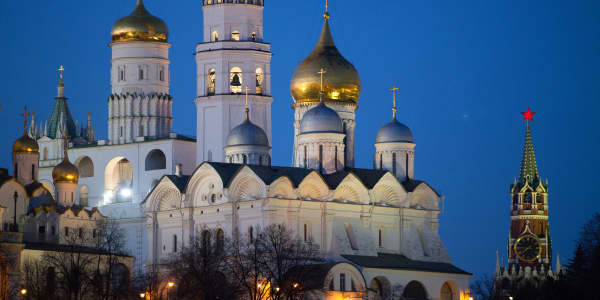Russia's economy is too reliant on oil and that is hitting the ruble, making it too volatile to become a reserve currency for the world, the deputy head of the presidential economic council and former finance minister said on Friday.
Alexei Kudrin, who is a reportedly a long-term confidant of the Russian president, made his comments at the St. Petersburg International Economic Forum, at which Vladimir Putin is also speaking.
"We are too dependent on oil and this is what stops our currency from being stable and makes it too volatile … as the price of oil dropped so did the Russia ruble," Kudrin said at a panel discussion hosted by CNBC.
Russia is one of the world's largest producers of crude oil, according to the Energy Information Administration, and its economy is heavily reliant on energy exports, which also include natural gas.
US global responsibility
The dollar appreciated by around 120 percent against the ruble between July 2014, when crude began its steep prices rout, and January 2016, when prices began a partial recovery.
The greenback currently trades at 65.4272 to the Russian currency.
"What the Russian government needs to do is diversify the economy … make revenues more dependable and less dependent on oil," Kudrin said on Friday.
"Then the Russian ruble will be more stable and … be used more in international settlements," he added.
Kudrin said the U.S. dollar would remain the world's reserve currency – the one most widely used in international trade and held by global governments as part of their foreign exchange reserves – for at least another decade.
"The American economy is going to be stable for the next 10 to 15 years – I could not vouch for a longer period of time… So the American currency will maintain its position," he said on Friday.
The dollar's status gave the U.S. a responsibility to help ensure global financial stability, Kudrin added.
'Symbolic gesture'
"If the U.S. means to maintain the status of its currency… then the budget deficit of the U.S. has to be cut back … This is happening – perhaps not quickly or radically enough – but it is happening," he said.
The Chinese yuan will be added to the International Monetary Fund (IMF)'s reserve currency basket in October, joining the U.S. dollar, the euro, the Japanese yen and sterling.
The yuan is the fifth-most active currency for global payments, according to SWIFT, which provides financial messaging services. The number of financial institutions making payments in yuan rose by 18 percent in the two years to February, according to the firm.
Nonetheless, Kudrin said the yuan's inclusion in the IMF basket was purely symbolic.
"The yuan is not fully convertible and it cannot really be a reserve currency. Although the IMF included it into the basket of currencies that was really a symbolic gesture," he said.





